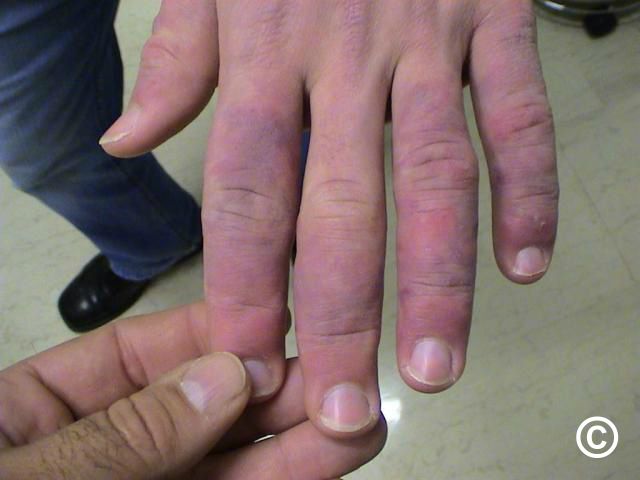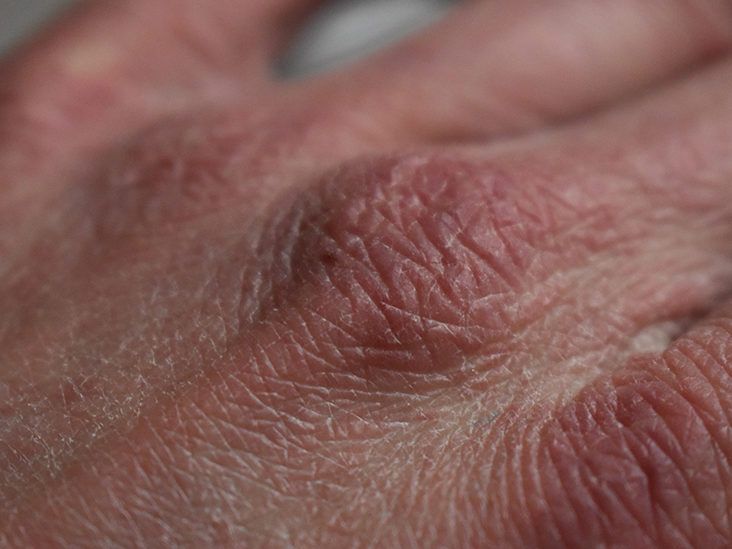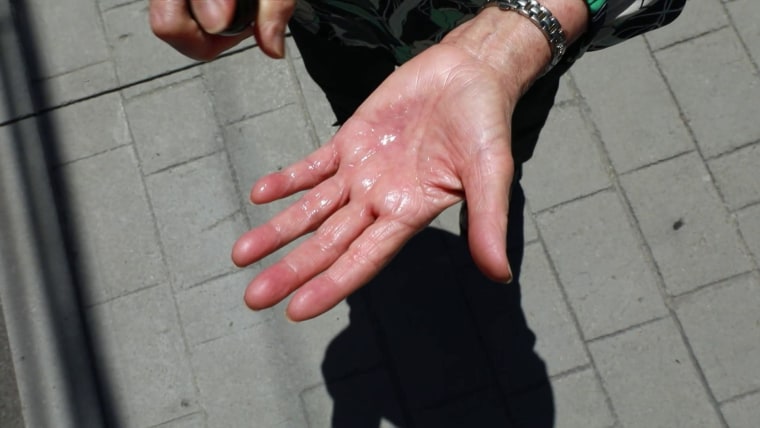A tiny scratch from gardening, a small insect bite, or even a kitchen cut might not seem serious at first glance. Many people wash the wound quickly, cover it with a bandage, and then forget about it. But sometimes, these minor injuries can set the stage for infections that grow rapidly and become life-threatening if left untreated.
Recent cases have reminded both doctors and the public that infections don’t always announce themselves loudly. Sometimes, the only warning signs are subtle changes — until the condition suddenly worsens. Understanding the risks, knowing the symptoms, and taking quick action are key to staying safe.
How Small Injuries Can Turn Into Big Problems

When the skin is broken — even slightly — bacteria, dirt, or venom can enter the body. Normally, the immune system fights these intruders effectively. However, under certain conditions, infections can develop and spread quickly.
Common Pathways to Infection
-
Insect or spider bites: Some species carry venom or bacteria that irritate the skin and weaken tissue.
-
Open wounds: Cuts, scrapes, or punctures may introduce harmful microbes, especially if not cleaned properly.
-
Contaminated water or surfaces: Swimming in polluted water or handling dirty tools can increase the risk.
-
Underlying health conditions: People with diabetes, vascular disease, or weakened immune systems face greater vulnerability.
Why These Infections Are So Dangerous

An untreated infection may progress in several stages:
-
Local inflammation: Redness, swelling, and pain around the wound.
-
Tissue involvement: Skin may start changing color, or blisters could appear.
-
Systemic reaction: Fever, chills, or dizziness signal that the infection is spreading.
-
Serious complications: In severe cases, tissue damage, blood poisoning (sepsis), or organ stress can occur.
Doctors stress that the transition from stage one to stage four can be surprisingly fast — sometimes within 24–48 hours.
Warning Signs That Require Immediate Care

While many cuts and bites heal normally, knowing when to seek medical help is crucial.
Red Flags to Watch For
-
Swelling that worsens instead of subsiding
-
Red or purple streaks spreading outward from the wound
-
Discoloration such as dark patches or blackened areas
-
Severe or escalating pain
-
Pus, foul odor, or unusual discharge
-
Fever, chills, dizziness, or confusion
If you notice any of these signs, do not wait. Medical evaluation is essential.
Preventing Dangerous Infections

The best way to avoid complications is through prevention. Good hygiene and protective habits go a long way in reducing risks.
Everyday Protective Steps
-
Use gloves when gardening, cleaning, or handling sharp tools
-
Wash wounds promptly with clean water and mild soap
-
Apply an antiseptic and cover the area with a sterile bandage
-
Change dressings regularly to keep wounds dry and protected
-
Avoid scratching bites as this can worsen irritation and introduce bacteria
-
Monitor wounds for unusual changes, even days after the initial injury
Why Timely Care Matters
Minor infections often respond quickly to antibiotics or basic medical treatment when caught early. Waiting too long, however, can mean the difference between a simple prescription and more intensive procedures.
Doctors often remind patients: “Don’t wait until it’s too late.” Seeking help early not only prevents complications but also reduces recovery time and medical costs.
Everyday Scenarios That Carry Hidden Risks

To understand how easily infections can develop, consider these common examples:
-
Gardening mishaps: A small thorn prick may seem harmless but can introduce soil bacteria.
-
Kitchen accidents: A knife cut that isn’t cleaned thoroughly can quickly worsen.
-
Sports injuries: Scrapes from turf or asphalt often come into contact with bacteria.
-
Travel exposure: Swimming in lakes, rivers, or poorly maintained pools may expose wounds to harmful microbes.
In each case, attentive care can prevent minor wounds from escalating.
Who Is Most at Risk?
While anyone can develop a severe infection, some groups face higher risks:
-
Individuals with diabetes or circulatory issues
-
Those undergoing chemotherapy or with immune deficiencies
-
Older adults with slower healing processes
-
People frequently exposed to unsanitary environments at work or during travel
If you fall into one of these categories, extra caution is essential.
FAQs on Infections From Minor Injuries
Can a bug bite really cause a serious infection?
Yes. While most bug bites heal without problems, certain insects — such as spiders or mosquitoes — can introduce bacteria or irritants that worsen quickly if untreated.
How fast can an infection spread?
In some cases, symptoms can escalate within 24 hours. That’s why monitoring wounds closely in the first two days is especially important.
Should I always go to the doctor for a cut or scrape?
Not always. Small injuries that remain clean and show no worsening signs can be managed at home. But if swelling, discoloration, or pain develops, medical attention is advised.
What should I do immediately after a cut or bite?
Clean the area with mild soap and water, apply antiseptic, and cover it. If the wound is deep, heavily contaminated, or caused by an animal bite, seek medical care immediately.
Are natural remedies enough to treat infections?
While some home remedies may provide comfort, they cannot replace professional medical evaluation. Infections that spread beyond the skin require antibiotics or advanced treatment.
Key Points to Remember
-
Don’t underestimate small injuries — they can develop into serious infections.
-
Watch for early warning signs like swelling, pain, or discoloration.
-
Prevention is best: clean and cover wounds properly, and avoid exposure to contaminants.
-
Seek help quickly if symptoms worsen, especially if fever or spreading redness occurs.
Conclusion
The image of a severely swollen or discolored hand that occasionally surfaces in medical reports serves as a cautionary reminder. A wound that looks small at first can become a much larger problem if ignored. The good news is that with vigilance, good hygiene, and timely medical care, most complications can be prevented.
By treating minor injuries with the attention they deserve, you protect yourself from unnecessary risks. Awareness, prevention, and quick action are the simplest tools for keeping small problems from turning into major health emergencies.
